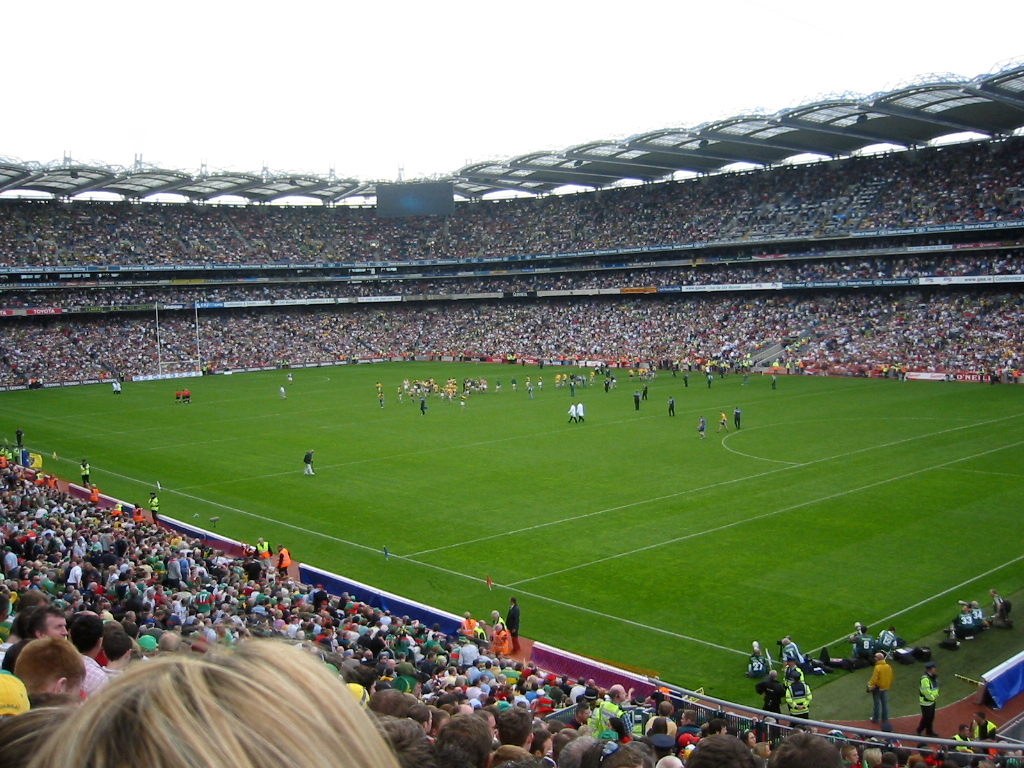“Neutral venues appear to be an under-utilised option for creating fairer and less predictable competition, especially in single-game knockout matches.” This is according to a study conducted by Adjunct Assistant Professor, Liam Kneafsey, and PhD candidate, Stefan Müller, both from the Trinity Department of Political Science.
The paper, which was recently published in the International Journal of Performance Analysis in Sport, investigates whether the home advantage is evident in Gaelic games, namely hurling and football, and also whether neutral venues “reduce the probability that the favourite team wins a match”. According to the study, Gaelic games were already a “unique case”, with 13% of their matches played at neutral venues in the last nine years. The study defines a neutral venue within Gaelic games as a match where neither team plays in their home county. Notably, they also included Croke Park as a home ground for Dublin. However, despite this inclusion of Croke Park, the authors note that results are not influenced when Croke Park is excluded as a neutral ground.
The authors analysed the favourite team, venue, and the result of 3,503 inter-county matches between 2009 and 2018, which they say allowed them to “estimate the proportions and probabilities of wins for the favourite team at home, away, and neutral venues.” Their various methodologies revealed results which are “extremely robust across distinct sporting codes”.
The home advantage is normally attributed to a number of factors, with the authors noting the effects of crowds, familiarity with the venue and playing area, and travel distance as key aspects of the advantage. However, the authors claim that the Gaelic games would be unlikely to suffer from “playing surfaces, travel distance, or cultural differences between teams”. Instead, they believe that more likely factors would be “psychological factors or referee bias”.
“They noted that in amateur sports, it is less likely that players and referees are trained to deal with the effects of hostile home crowds.”
The Trinity academics found that “a clear home advantage exists in Gaelic games in Ireland.” They stressed that the reasoning of long travel times and jet lag do not apply, while little or no variation in climate types, and natural turf being used in all competitive matches, meant that they were also negligible factors.
Instead, they say that the home advantage in Gaelic games is driven by the crowd effect on players, familiarity with a venue, established pre-match routines, and the influence of home fans on the referees’ decisions. Müller and Kneafsey explain that in amateur sports it is less likely that players and referees are “trained to deal with the effects of hostile home crowds and other contributing factors”.
“The study suggests that hurling and Gaelic football could become more balanced in their championships if more important matches are played on a neutral ground.”
They also recognised the positive effects of neutral venues, which they say “decrease the probability of the stronger team winning compared to when they play at home”. They also outline various reasons for which players may fail to “develop familiarity with the dimensions and facilities”.
The study suggests that hurling and Gaelic football could become more balanced in their championships if more important matches are played on a neutral ground. It did recognise that there is an “established tradition” associated with the location of certain matches in Gaelic games, but also that “significant room to expand the use of neutral venues” could be utilised to improve balance within the sports.
It argued specifically that single-elimination competitions are “ripe for more systematic use of neutral venues” with the intention of “enhanc[ing] opportunities for underdogs”. The authors urge that “consideration should be given to a move towards hosting more major games at neutral venues”.
Speaking to Trinity News, co-author Stefan Müller confessed that despite this research, there is “very little work across countries and sporting codes [regarding] neutral venues,” and that this was because “GAA is an outlier in the number of games played at neutral venues in both hurling and football”. According to Müller, the amount of games played at neutral venues was at “a very high rate of matches on senior level, compared to other sports”.
He also spoke of his interest in the research, and said that he and his co-author are “very passionate about Gaelic games,” and “talk a lot about sports in our free time or during coffee breaks”. He pointed out that this interest led them to wonder “whether the unique feature of neutral venues indeed creates less predictable competition in Gaelic football and hurling”.
He also said that “hurling and football offer a unique opportunity to test whether neutral venues reduce the probability that the favourite team wins”. He also believes in its relevance as the GAA “thinks about how to tweak the Super 8s and the use of Croke Park as a home venue by Dublin”.






